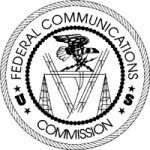Please.
Please. Please. Please.
Can we please talk about something besides LightSquared?
Not yet? You mean, they are still here?
And we have so many other GNSS-related topics that deserve comment:
Some peculiar cuts in civil GPS funds and GPS III budgets being proposed by congressional committees.
A re-examination — aka analysis of alternatives — of GPS and PNT options in general. Space weather and an impending solar max. Warrantless GPS-aided tracking before the Supreme Court.
Please.
Please. Please. Please.
Can we please talk about something besides LightSquared?
Not yet? You mean, they are still here?
And we have so many other GNSS-related topics that deserve comment:
Some peculiar cuts in civil GPS funds and GPS III budgets being proposed by congressional committees.
A re-examination — aka analysis of alternatives — of GPS and PNT options in general. Space weather and an impending solar max. Warrantless GPS-aided tracking before the Supreme Court.
Signs of life in the Department of Homeland Security seven-year-old mandate to assess GPS vulnerability and devise mitigations.
And further afield: Galileo’s first real satellites in orbit, GLONASS finishing up its constellations, China promising an actual Compass ICD.
But, no, the 500-pound gorilla is still here.
The greatest purveyor to date of demonstrated GPS interference (GNSS interference, actually) is still pretending that it has priority rights to adjacent spectrum, that it has solutions, that it will bring thousands of jobs and wireless broadband to the American hinterlands, and eventually, I’m sure, that it has a cure for cancer and the bluebird of happiness in hand.
Okay, so that’s how it has to be — all LightSquared, all the time.
Anyway, when we left off, LightSquared had altered (for the time being) its plan for rolling out wireless broadband services in the face of an insurmountable mountain of evidence that transmissions from its proposed terrestrial network would cause widespread interference to GPS.
The company told the Federal Communications Commission (FCC) that it would lower the strength of those signals and — temporarily — transmit only in the lower 10-megahertz of the Mobile Satellite Service (MSS) spectrum next to GPS. Meanwhile, LightSquared assured the agency, technical fixes were being developed to accommodate high-precision GPS receivers that would still suffer from the 10-megahertz low broadcasts.
The FCC responded that new rounds of tests would be necessary when those solutions appeared.
In late September, putative solutions started showing up, most prominently in a filter-based design proposed by JAVAD GNSS, but also in other hardware fixes offered by antenna manufacturers PCTEL and Partron America. However, so far, they only address the effects of LightSquared’s lower band — not those in the upper band needed by modernized military receivers, wideband high-precision commercial equipment, and equipment that uses satellite-based augmentation systems in the MSS spectrum.
Meanwhile, LightSquared offered to pay the cost of retrofitting receivers to mitigate its interference — but only for governmental GPS users. The millions of other GPS users were on their own. LightSquared argued that GPS manufacturers should bear the costs for taking care of the latter.
The company continues to try to pass off the GPS Standard Positioning Service Performance Specification as a receiver standards document, rather than the statement of signal-in-space parameters that it is.
And, of course, LightSquared asserts a specious heritage of L1 spectrum rights that reflect neither the traditional allocations for the bands that it inherited from bankrupt companies nor its less-than-two-year-old existence.
Along the way, the company bulked up its PR efforts, funding a massive advertising campaign and adding another couple of firms to its cadre of lobbyists — overall, a $1.5 million investment this year alone.
Finally, if all else fails, LightSquared threatens to sue — the GPS industry, or at least selected companies therein.
Over the course of the company’s yearlong regulatory putsch, its business plan and operational proposals have become no more credible while its tactics and claims continue to deteriorate. The risks they pose for critical U.S. infrastructure and national defense — not to mention the economic chaos of choking off a broad commercial sector — are enormous.
Only the backing of a billion-dollar hedge fund operating in the plutocracy that America’s political system has become enables LightSquared to dominate the conversation.
It’s time for someone to send these bad boys home.





